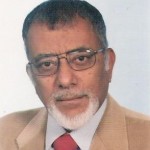Alienated At Home: Jewish And Tamil Experience
What follows is consequent of a remark made by (Sinhalese) Mr Bradman Weerakoon on 20 June 2014 in the course of a eulogy on his close friend of many years, (Tamil) Mr Duleepkumar. It was, I felt, both eulogy and elegy: “His last years were painful, mentally more than physically, as he took on himself the sad plight of what was happening to his people […] in the North and East.” As Literature teaches us, collective misfortune is finally experienced by individual, sentient, human beings; in turn, an individual life can give us insight into a wider, and therefore impersonal, anonymous, tragedy: as it has been noted, the noun ‘Literature’ can also be seen as a verb.
In an email communication to me Mr Weerakoon added: “He cut himself from his former friends because he could not understand their indifference to what was happening to fellow citizens.” The last phrase, “fellow citizens” is significant. Writing on Adrian Wijemanne, I observed that if the Sinhalese had been oppressed, Adrian Wijemanne would have fought as courageously, clearly and eloquently as he had fought for the Tamils. Fundamentally, the struggle is not on behalf of a group but for fellow citizens; going further, for the human-rights of all, irrespective of skin-colour, religion, language, class or sex. Words from Keats’ ‘Fall of Hyperion’ come to mind: “those to whom the miseries of the world / Are misery, and will not let them rest”. (For “rest” one could substitute words such as be “indifferent”, “uncaring” or “inactive”.)
A friend now settled in Perth, Australia, observed that injustice, when it is prolonged, comes to be seen and accepted as normal. Time transforms the abnormal into what comes to be seen as normal: for example, the Chinese occupation of Tibet. New roads and buildings; social and cultural activities camouflage fundamental injustice and present the appearance of normality, indeed of progress. Mr Duleepkumar declined to be deceived.
My friend, like Mr Duleepkumar, lamented the large number of “Sinhalese friends from our past who so enriched our lives but, when it came to the crunch, disappointed us”. The disappointment was because (1) they had succumbed to prevailing hegemonic ideas, abandoning earlier principles and ideals. They had become ‘racists’, though still claiming to be of the Left: a socialist does not countenance hierarchy (be it of class, ‘race’, sex, or religion), oppression and exploitation. (2) Or they were indifferent. (3) Or, if they were concerned, they were silent and inactive. With reference to the last, Martin Luther King sadly said that the silence of friends causes more pain than the words of enemies. Read More

